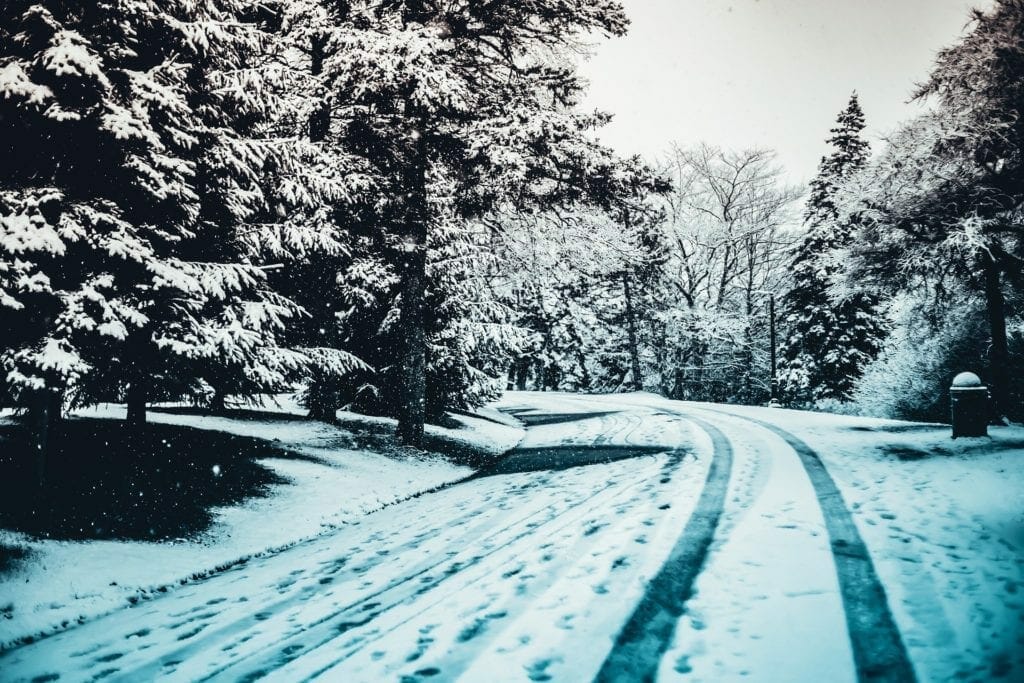When the days get shorter and cold weather begins, most RVers must prepare for the winter months. How you ready your RV for winter depends on your type of RV: trailer, towable, and/or motorized. Summer campers are trying to ready their rvs for the season, while snowbirds are focusing on maintenance checks and road trips.
In this article, we offer tips for both. If you are saving your RV for the winter or are planning a cross-country ride, these tips will make it simpler.
Winterizing Your Motorhome After Summer Camping
As summer season ends, many RVers must winterize their RV before winter season starts. Winterization is a must whether you live in a warm environment or have a heated storage space.
Here is a condensed overview of the simple steps to take.
- Make sure to scrub clean places thoroughly.
- Prepare the infrastructure for water and sanitation with antifreeze.
- Disconnect the battery cable in the recreational vehicle.
- Seal any holes in or near screens, and add weather stripping.
- Be sure to service your appliances for the upcoming season.
- Mind to check the seal of your RV and also seal your RV well against bugs and rodents.
- When the weather breaks at the end of winter, you will need to de-winterize your RV as well.
Preparing Your Recreational Vehicle for Winter Road Trips – (Snowbirds!)
For certain tourists, the season doesn’t end with the summer solstice. There are also RV users who drive through the winter months, in search of warmer weather. Not interested in weathering winter in the cold?
Why not Snowbird on down to the warmer climate?
If you’ve never tried Snowbirding before or you happen to be a seasoned veteran of chasing the warmth, We have some tips that you may want to check out.
These four basic suggestions will help you turn your first time RV road trip into a spectacular winter adventure. Snowbirding in your RV is like going to a lost world where the sun is warm and the trees, plants and wildlife thrive. This is the same scenery you’ve been dreaming of during the winter break. If you’re feeling down, a change in scenery may be beneficial for your mental health.
Prior preparation and research is important for a good snowbirding trip.
1. Choosing a path.
Find a destination that represents your personal living standards and finances. The comprehensive gas calculator from KOA will help you estimate the fuel cost for your ride. Two of the most popular snowbird destinations are Florida and Western states (California, Arizona, Texas). Please note the advantages and disadvantages of these three common destinations. Still too expensive? Do you enjoy getting a high humidity or a cold nighttime temperatures? Will you prefer a bunch of people or a variety of landscapes?
These are concerns you should first remember when planning your destination. Think about what sort of atmosphere is perfect for you and go from there. Please bear in mind that during this trip you will be mobile so if a location isn’t to your taste, there are always other destinations to consider. Your best bet will be to shape a contingency plan.
2. Organizing the car and RV.
Your RV and tow vehicle must be in good condition before driving to your winter home in Florida. If the both have not been handled properly, you may go from healthy snowbird to sitting duck when you are stranded on the highway.
Make sure your tow vehicle or motorhome has a chance to get an inspection from a competent mechanic before heading out on your journey.
Take into account adding some waste tank cleaning to your RV.
The first phase to a lighter travel is clearing or decluttering your RV.
Make sure that the air conditioning in your RV is working properly.
Make sure your water and LP Gas lines are functioning properly.
Know your LG Gas usage amounts. Always bring a backup heating device. Coleman makes tent camping heaters that run off of small propane tanks you can pick up at any hardware store.
3. Defense against winter variability.
Decide how long you want to snowbird for if you want to have a stress free experience you may want to winterize your primary residence (assuming you’re not a full time RVer). Winterizing your home involves turning off the AC, and water to the home.
Daily eyes on your property will provide additional security from theft or vandalism. It’s not a bad idea to contact your local police department to notify them that your house will be empty for a while. See if you can’t employ the help of a friend to keep an eye on your home as well while you’re away. Timer lights and dimmers are a great way to give the appearance of your home being inhabited. Don’t forget to forward your mail!
4. Packing and Preparation
The best way to ensure everything you will need while spending your winter in a warmer climate is to build a checklist. You will be able to change this list according to your particular needs.
- Clothes (Warm and cold)
- First aid package.
- RV household products . (dishware, garbage bags, cleaning supplies, fire extinguisher, batteries, flashlight, etc.)
- Entertaining (iPod, laptop, books, boards games, etc.)
- Unique Objects (hiking gear, sporting goods, fishing poles, etc.)
- Non-perishable food.
- Bringing warm clothing is not a bad idea in cold climates.
The best part about being on the road with an RV is storage space. If you forget something you need it’s usually pretty easy to find at a local hardware or big box retail location.


